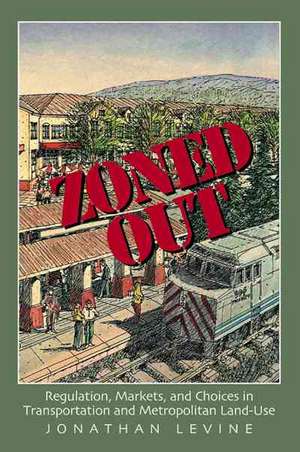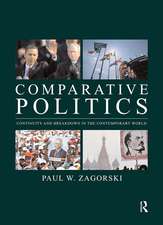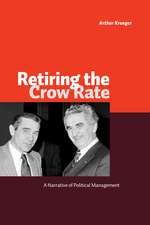Zoned Out: Regulation, Markets, and Choices in Transportation and Metropolitan Land Use
Autor Jonathan Levineen Limba Engleză Paperback – 18 oct 2005
| Toate formatele și edițiile | Preț | Express |
|---|---|---|
| Paperback (1) | 362.42 lei 6-8 săpt. | |
| Taylor & Francis – 18 oct 2005 | 362.42 lei 6-8 săpt. | |
| Hardback (1) | 1000.27 lei 6-8 săpt. | |
| Taylor & Francis – 19 oct 2005 | 1000.27 lei 6-8 săpt. |
Preț: 362.42 lei
Nou
Puncte Express: 544
Preț estimativ în valută:
69.36€ • 72.14$ • 57.26£
69.36€ • 72.14$ • 57.26£
Carte tipărită la comandă
Livrare economică 14-28 aprilie
Preluare comenzi: 021 569.72.76
Specificații
ISBN-13: 9781933115153
ISBN-10: 1933115157
Pagini: 224
Ilustrații: 1 line drawings, 10 halftones
Dimensiuni: 156 x 234 x 14 mm
Greutate: 0.75 kg
Ediția:1
Editura: Taylor & Francis
Colecția RFF Press
Locul publicării:Oxford, United Kingdom
ISBN-10: 1933115157
Pagini: 224
Ilustrații: 1 line drawings, 10 halftones
Dimensiuni: 156 x 234 x 14 mm
Greutate: 0.75 kg
Ediția:1
Editura: Taylor & Francis
Colecția RFF Press
Locul publicării:Oxford, United Kingdom
Public țintă
Professional Practice & DevelopmentNotă biografică
Jonathan Levine is associate professor and chair of the Urban and Regional Planning Program in the A. Alfred Taubman College of Architecture and Urban Planning at the University of Michigan.
Recenzii
'Far-reaching and paradigmshaking. . . Levine forcefully argues that the current framework in which both suburban sprawl and possible reform strategies are debated is badly skewed.'Urban Affairs Review'Jonathan Levine forcefully demonstrates as groundless the belief that compact development must prove its transportation and other benefits before it is permitted as legitimate.'Anthony Downs, Senior Fellow, Brookings Institution'Few books can show us something new in the well-explored territory of transportation, land use, and smart growth. Zoned Out . . . does just that.'Planners Library Newsletter, American Planning Association
Cuprins
Chapter 1 MARKET FAILURES AND PLANNING FAILURES; Chapter 2 TRAVEL BEHAVIOR RESEARCH AND THE “MARKET”; Chapter 3 MARKETLIKE INTERPRETATIONS OF LAND-USE CONTROLS; Chapter 4 THE HARMS OF REGULATORY EXCLUSION; Chapter 5 IS ZONING STATE REGULATION OR A LOCAL PROPERTY RIGHT?; Chapter 6 The Limited Power of Smart-Growth Regulation; Chapter 7 Developers, Planners, and Neighborhood Supply; Chapter 8 THE DEMAND FOR TRANSPORTATION AND LAND-USE INNOVATION; Chapter 9 A NEW FOUNDATION FOR POLICY REFORM;










